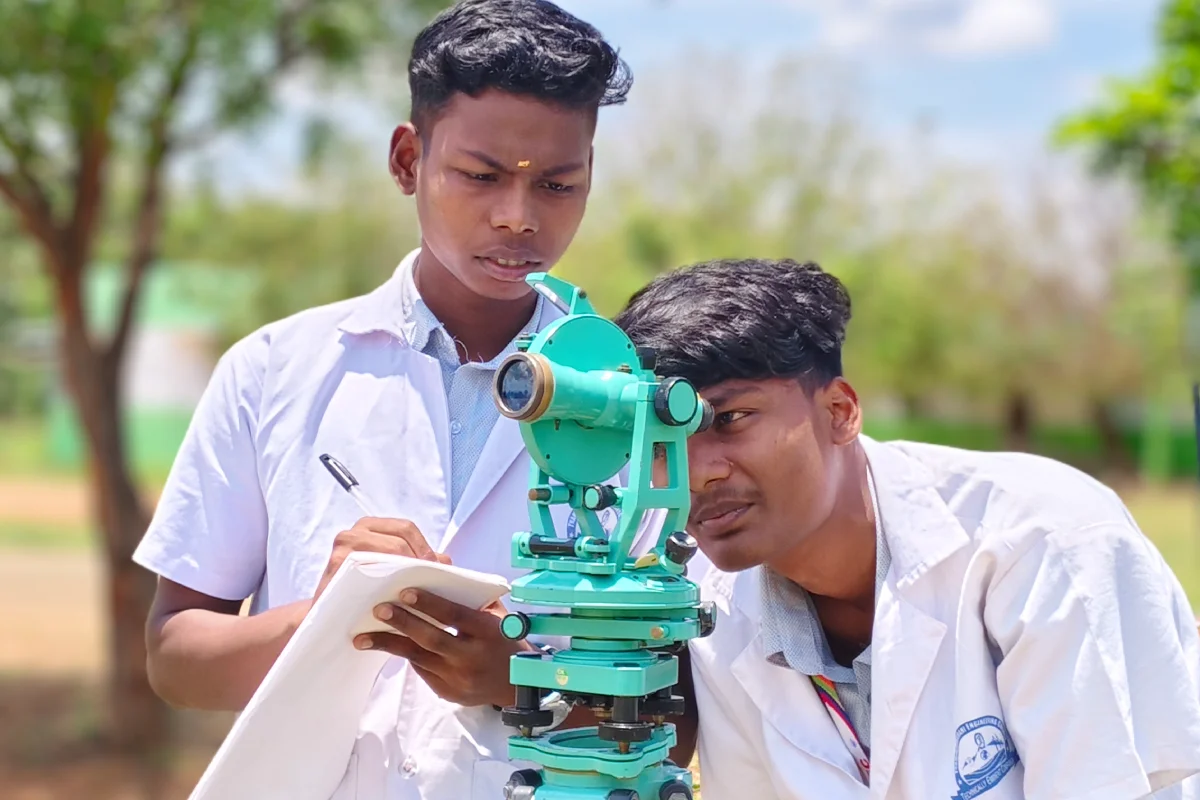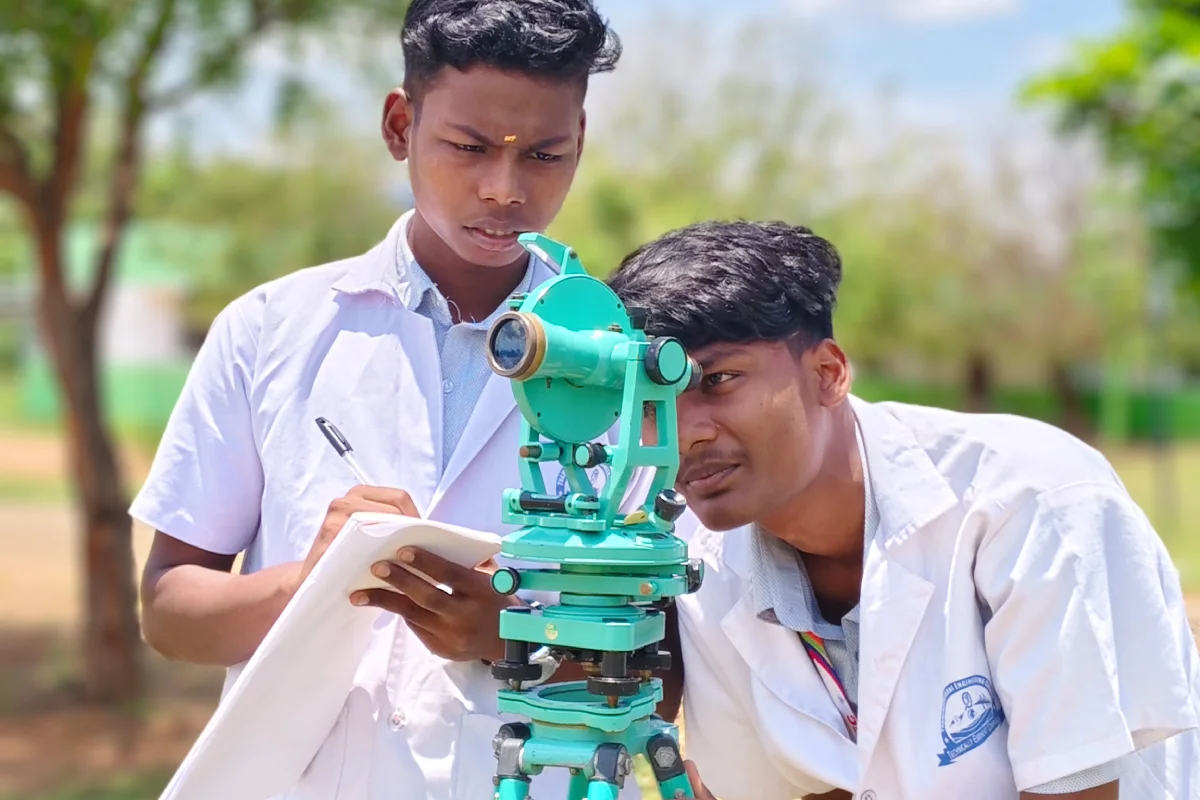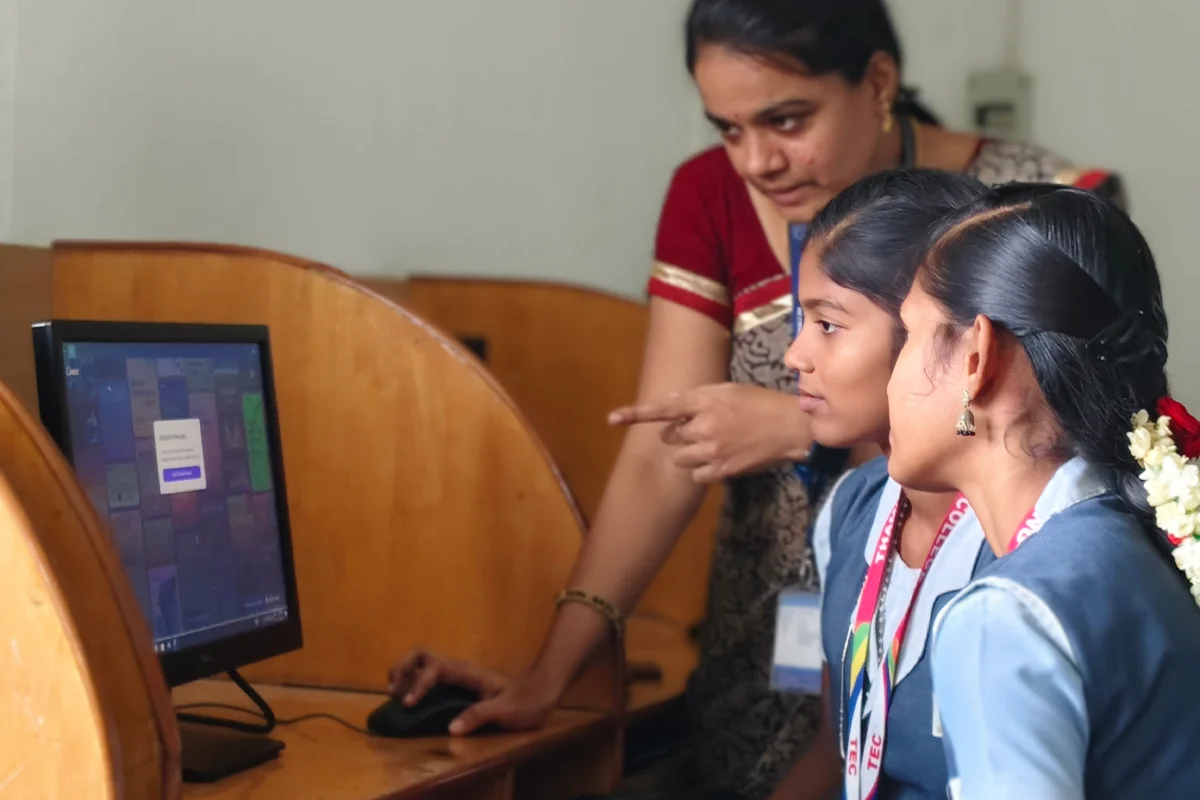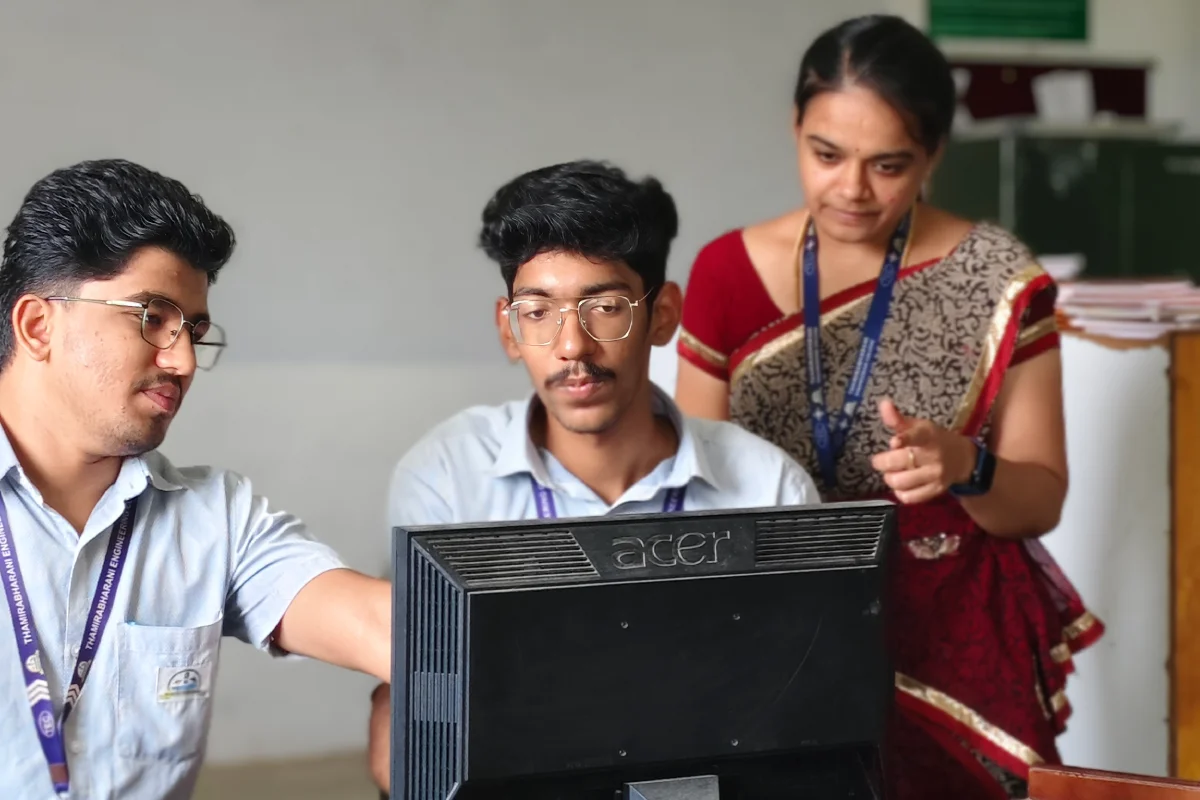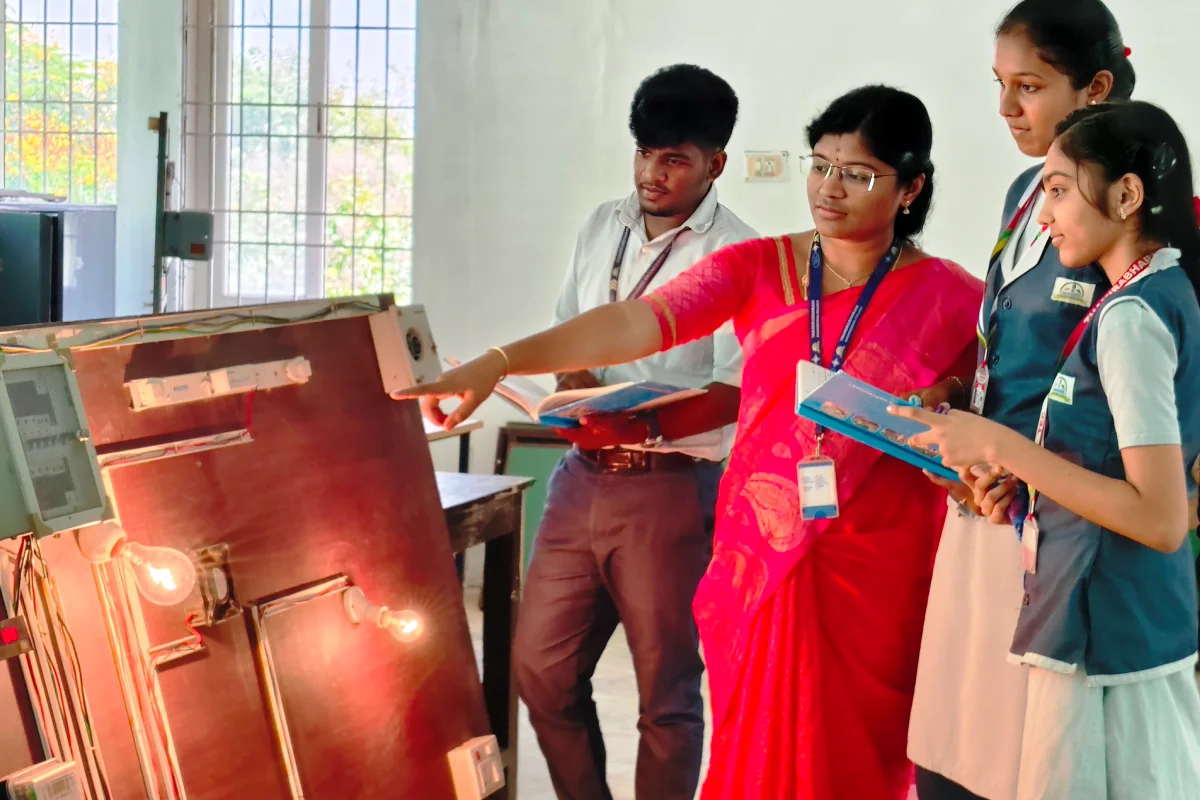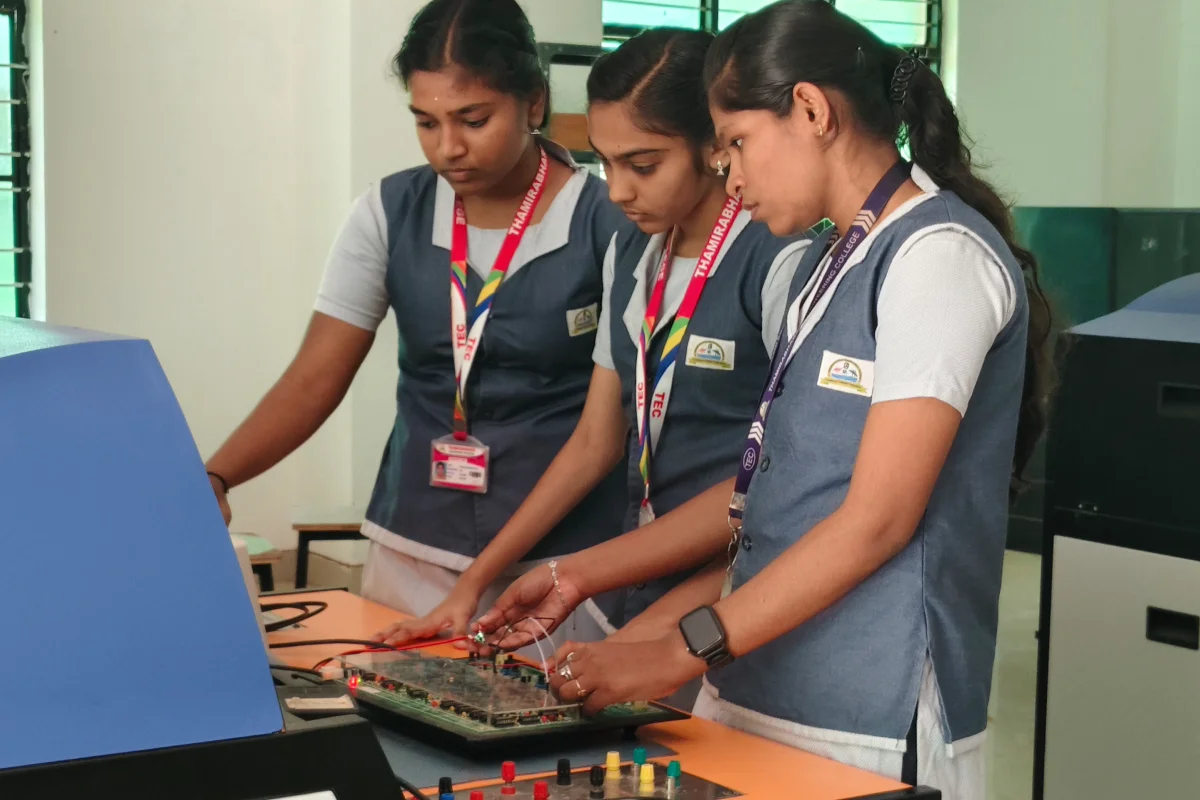About Department
The Department of Electronics and Communication Engineering was established in the year 2011. The Department offers B.E Program with a vision to produce globally competent professionals. This course offered is updated regularly to keep up with the growing demands of the research community and the industry. From mobile phones to fiber optics to remote sensing, there are exciting avenues to explore and create even better ideas. With technology becoming all pervasive in everyday life, opportunities for electronic engineers are endless. The Department of ECE has well qualified and dedicated Faculty members specialized in various fields.
Department Vision
To achieve excellence in Technical Education, Research and Entrepreneurial attitudes in the stream of Electronics and Communication Engineering.
Department Mission
Providing a comprehensive outcome based engineering education and a state of art infrastructure to empower students for the development of their critical thinking, effective communication and creativity.
Creating an environment conducive for the students to develop industry readiness in the field of Electronics and Communication Engineering by exposing current innovations and learning through collaborations with Academia, Industry and Research Organizations.
Facilitating avenues to create the entrepreneurship desires among Electronics and Communication students by developing individual skills, professional ethics, moral values and societal concern
Core Value
| Excellence as benchmark │ Societal Concern │ Creativity and Innovation | |
| Collaborative Team work | Ethics in real life |
Program Outcomes (POs)
| PO 1 | Engineering Knowledge | Apply the knowledge of mathematics, science, engineering fundamentals, and engg. specialization to the solution of complex engineering problems. |
| PO 2 | Problem Analysis | Identify, formulate, research literature, and analyze engineering problems to arrive at substantiated conclusions using first principles of mathematics, natural, and engineering sciences. |
| PO 3 | Design/Development of Solutions | Design solutions for complex engineering problems and design system components, processes to meet the specifications with consideration for the public health and safety, and the cultural, societal, and environmental considerations. |
| PO 4 | Conduct Investigations of Complex Problems | Use research-based knowledge including design of experiments,
analysis and interpretation of data, and synthesis of the information to provide valid conclusions. |
| PO 5 | Modern tool usage | Create, select, and apply appropriate techniques, resources, and modern engineering and IT tools including prediction and modeling to complex engineering activities with an understanding of the limitations. |
| PO 6 | The Engineer and Society | Apply reasoning informed by the contextual knowledge to assess societal, health, safety, legal, and cultural issues and the consequent responsibilities relevant to the professional engineering practice. |
| PO 7 | Environment and sustainability | Understand the impact of the professional engineering solutions in societal and environmental contexts, and demonstrate the knowledge of, and need for sustainable development. |
| PO 8 | Ethics | Apply ethical principles and commit to professional ethics and responsibilities and norms of the engineering practice. |
| PO 9 | Individual and Team Work | Function effectively as an individual, and as a member or leader in teams, and in multidisciplinary settings. |
| PO 10 | Communication | Communicate effectively with the engineering community and with society at large. Be able to comprehend and write effective reports documentation. Make effective presentations, and give and receive clear instructions. |
| PO 11 | Project Management and Finance | Demonstrate knowledge and understanding of engineering and management principles and apply these to one’s own work, as a member and leader in a team. Manage projects in multidisciplinary environments. |
| PO 12 | Life-long Learning | Recognize the need for, and have the preparation and ability to engage in independent and life-long learning in the broadest context of technological change. |
Program educational objectives (PEO)
After few years of graduation our Electronics and Communication graduates are expected to
| PEO 1 | To provide the students with a strong foundation in the required sciences in order to pursue studies in Electronics and Communication Engineering. |
| PEO 2 | To gain adequate knowledge to become good professional in electronic and communication engineering associated industries, higher education and research. |
| PEO 3 | To develop attitude in lifelong learning, applying and adapting new ideas and technologies as their field evolves. |
| PEO 4 | To prepare students to critically analyze existing literature in an area of specialization and ethically develop innovative and research oriented methodologies to solve the problems identified. |
| PEO 5 | To inculcate in the students a professional and ethical attitude and an ability to visualize the engineering issues in a broader social context. |
Program Specific Outcomes (PSO)
| PSO 1 | Design, develop and analyze electronic systems through application of relevant electronics, mathematics and engineering principles. |
| PSO 2 | Design, develop and analyze communication systems through application of fundamentals from communication principles, signal processing, and RF System Design & Electromagnetics. |
| PSO 3 | Adapt to emerging electronics and communication technologies and develop innovative solutions for existing and newer problems. |
Placement
Consistent placement record with top recruiters and support for higher studies.
Events
Workshops, hackathons, guest lectures, and national conferences are held regularly.
Facult Achievements
Specialized skills in artificial intelligence, data science, and software engineering.
Student Achievements
State-of-the-art labs, student achievements, and industry collaborations.
Newsletter
Consistent placement record with top recruiters and support for higher studies.
Fees and Structure
- Number of seats : 60
- Duration : 4 Years
- Fee : ₹ ₹ 50,000

